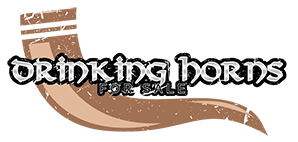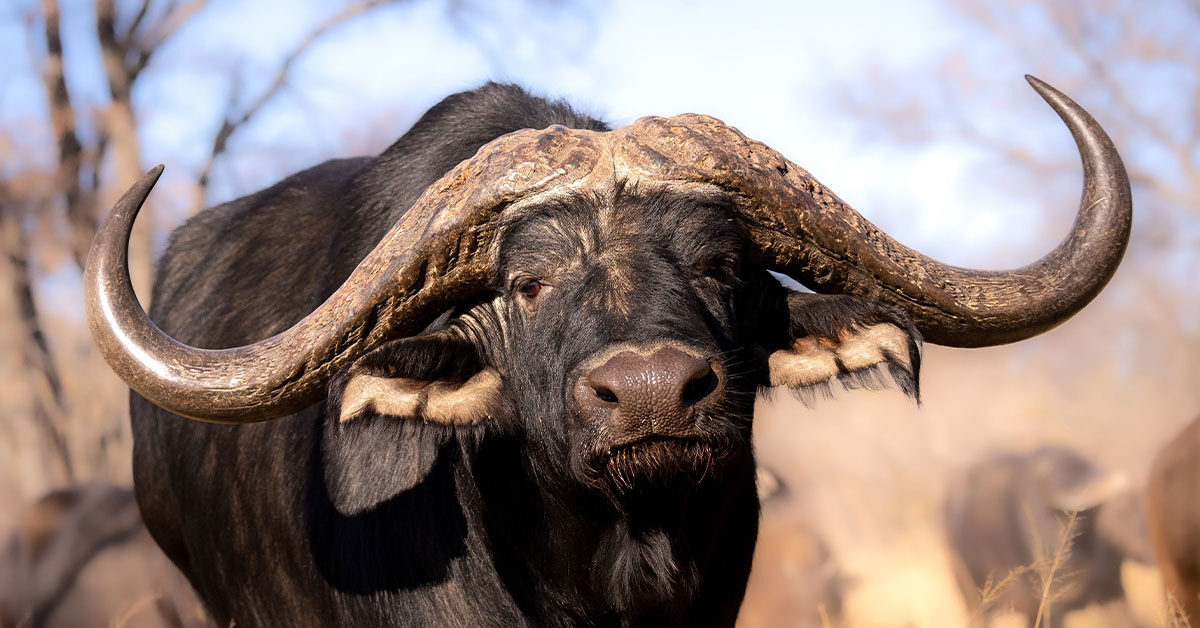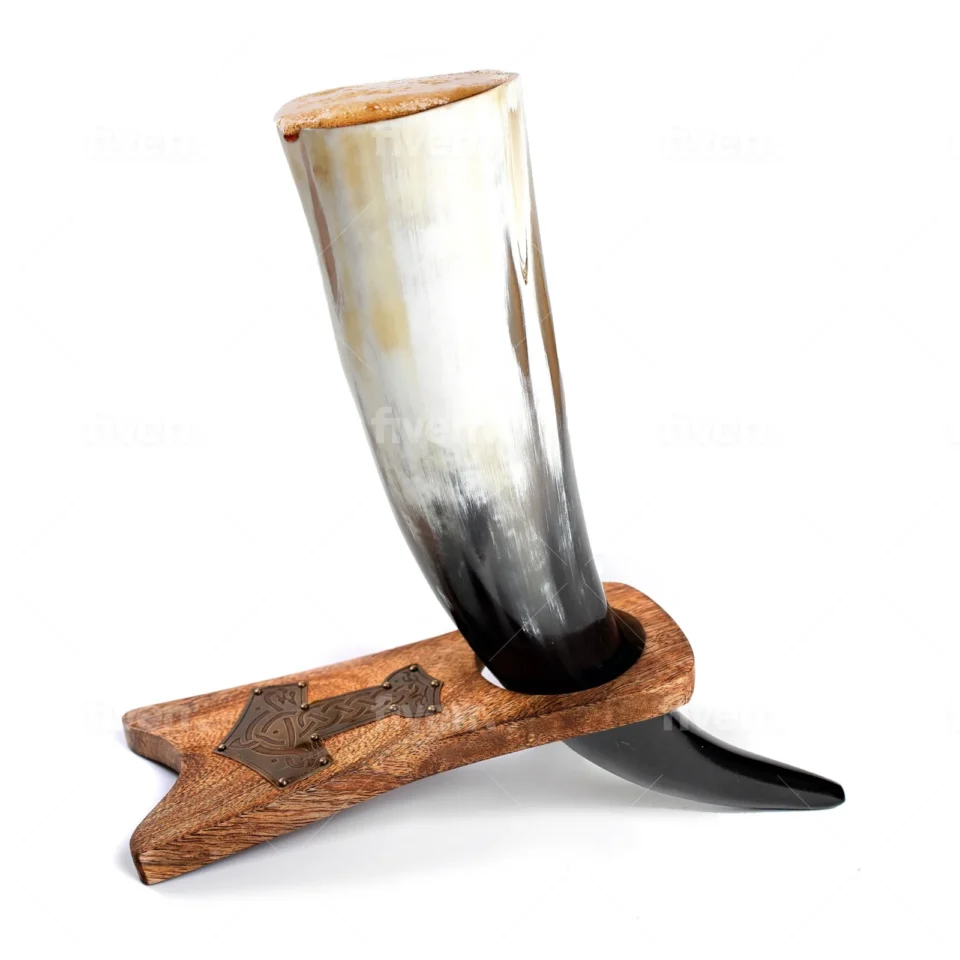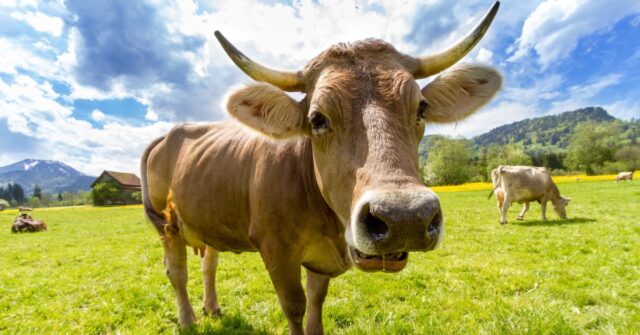The practice of ethical sourcing is crucial in the production of drinking horns, a tradition steeped in history yet thriving in modern culture.
This post explores the importance of responsible material sourcing, focusing on environmental and social impacts, to guide enthusiasts and potential buyers in making informed decisions.
Introduction to Ethical Sourcing in the Drinking Horn Industry
Ethical sourcing in the drinking horn industry is a multifaceted issue, encompassing environmental, social, and economic aspects.
Understanding its importance not only helps in preserving traditional craftsmanship but also in protecting the environment and supporting fair labor practices.
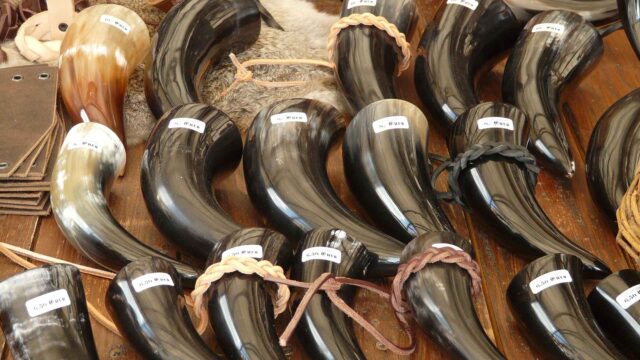
Understanding Drinking Horns: History and Modern Usage
Drinking horns have been used since ancient times, often associated with ceremonial practices and cultural traditions.
Today, they are popular among enthusiasts for their historical significance and unique aesthetic appeal.
Why Ethical Sourcing Matters for Drinking Horns
Ethical sourcing ensures the materials used in drinking horns are obtained in a way that minimizes environmental harm, respects animal welfare, and supports local communities.
It’s a commitment to sustainability and ethical responsibility in the industry.
Materials Used in Drinking Horns
The primary material for drinking horns is, unsurprisingly, animal horns, typically from bovines. Understanding the origins and processing of these horns is key to ensuring ethical sourcing practices.
Types of Horns and Their Origins
Drinking horns are usually made from cattle or buffalo horns.
The ethical sourcing of these horns involves ensuring the animals are treated humanely and that horn collection does not detrimentally affect their populations or habitats.
Other Materials in Drinking Horn Craftsmanship
Other materials, such as wood or metal for decorative elements and bases, are also used. Ensuring these materials are sustainably sourced is equally important in the ethical production of drinking horns.
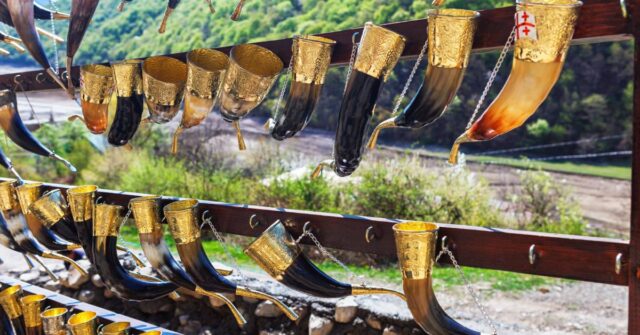
Evaluating Ethical Sourcing Practices
To evaluate ethical sourcing practices, it’s essential to consider the entire supply chain, from the initial horn collection to the final product reaching the consumer.
Standards and Certifications for Ethical Sourcing
Various standards and certifications exist to help consumers identify products that adhere to ethical sourcing practices, including fair trade certifications and environmental stewardship labels.
Challenges in Ethical Sourcing of Animal Horns
Challenges in ethical sourcing include ensuring animal welfare, maintaining sustainable horn collection rates, and navigating complex supply chains that often span multiple countries and cultures.
Environmental Impact of Horn Sourcing
The environmental impact of horn sourcing is significant, affecting wildlife habitats and ecosystems. Sustainable practices in this area are essential for minimizing ecological footprints.
Sustainable Practices in Horn Collection
Sustainable practices include using horns from naturally deceased animals or as by-products of the meat industry, thereby avoiding additional harm to animal populations.
Impact on Wildlife and Ecosystems
Unsustainable horn collection can lead to detrimental effects on wildlife and ecosystems. Ethical sourcing must consider the broader ecological consequences of horn procurement.

Social and Economic Aspects of Ethical Sourcing
Ethical sourcing also encompasses social and economic dimensions, particularly the treatment of workers and the economic impact on local communities.
Supporting Local Communities and Artisans
By choosing ethically sourced drinking horns, consumers can support local artisans and communities, ensuring fair compensation and fostering traditional crafts.
Ensuring Fair Trade in the Drinking Horn Industry
Fair trade practices in the drinking horn industry involve transparent supply chains, fair wages, and good working conditions for those involved in the production process.
Consumer’s Guide to Ethically Sourced Drinking Horns
For consumers interested in ethically sourced drinking horns, understanding how to identify such products is crucial.
How to Identify Ethically Sourced Products
Identifying ethically sourced drinking horns involves looking for certifications, understanding the supply chain, and being aware of the materials used.
Questions to Ask Vendors
Consumers should ask vendors about the origin of the horns, the conditions under which they were obtained, and any certifications the products might have.
The Future of Ethical Sourcing in the Drinking Horn Industry
The future of ethical sourcing in the drinking horn industry looks promising, with growing consumer awareness and advancements in sustainable practices.
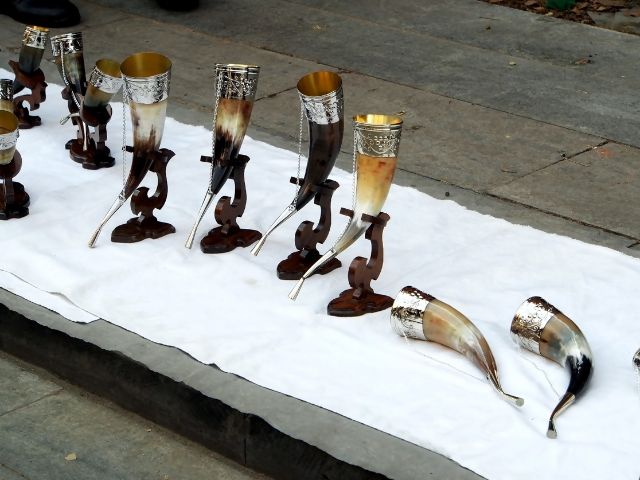
Innovations and Emerging Practices
Innovations in sustainable materials and ethical business models are emerging, shaping the future of the drinking horn industry.
How Consumers Can Influence Positive Change
Consumers play a crucial role in promoting ethical sourcing by making informed choices and advocating for responsible practices in the industry.
The Importance of Ethical Choices in the Drinking Horn Market
In conclusion, ethical sourcing in the drinking horn industry is not just a trend but a necessity for environmental sustainability, social responsibility, and preserving traditional craftsmanship.
Consumers, artisans, and businesses alike have a role to play in fostering ethical practices in this unique and culturally rich market.
